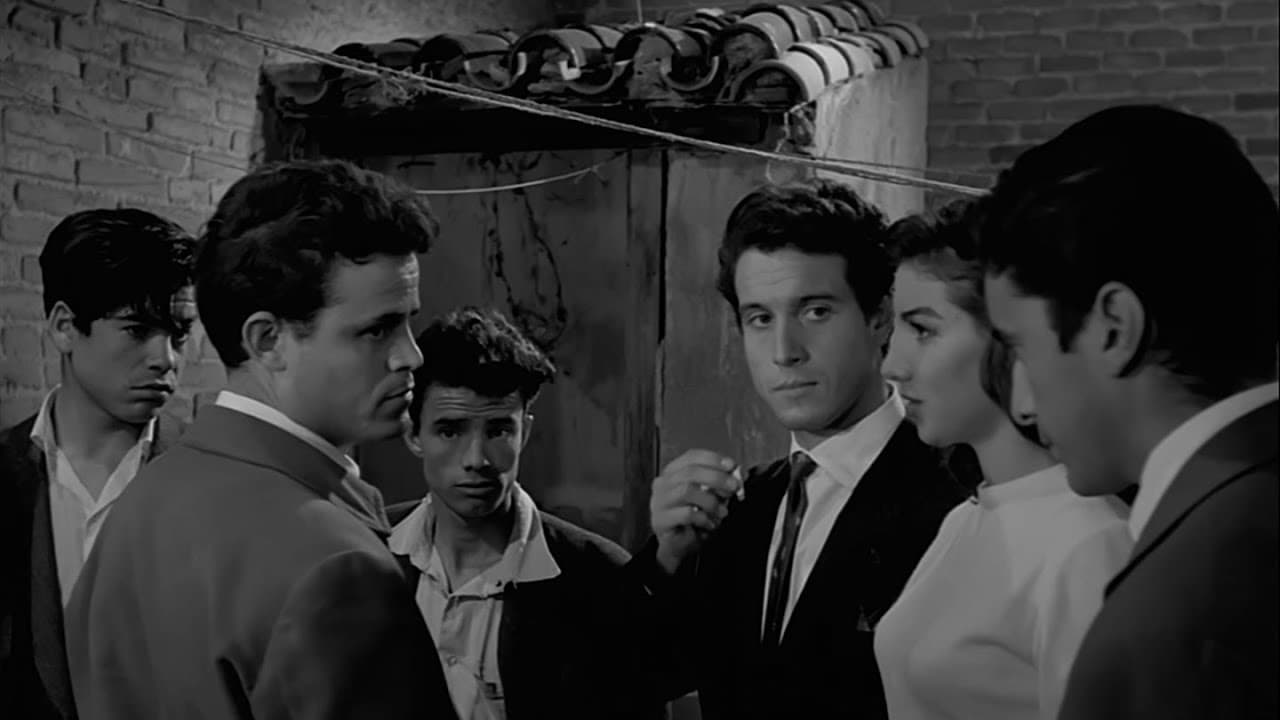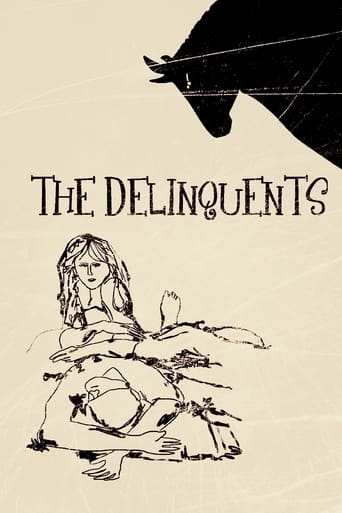

Interesting and thought-provoking look about youthful delinquency in Spain from the 50s dealing with juvenile delinquents who execute crimes and misdemeanors to escape the poverty and also as part of the street life . A group of friends embark on a short and doomed life of crime in Madrid of the late fifties . Filmed in atmospheric black and white , in and around Madrid , with some great locations , the characters choose to live dangerously rather than work in deadend jobs . The protagonists decide to live edgily and they are forced to live a life of crime and risks to survive along the suburbs of Madrid . The film seems to be saying something about society and opportunity , but doesn't get lost in any sermons . It sticks with the characters up to the inevitable and surprising ending , and goes into some out of the way locations . Well-paced and finely-directed by Carlos Saura who tried to create a sort of Spanish Neo-Realism by tackling the tiny juvenile delinquency in the Madrid's poor slums from a sociological point of view . This is his first stage dealing with delinquents , the second was 20 years later : ¨Deprisa , Deprisa¨ (it won Golden Bear in Berlin Festival) , Saura tried to take a position in observation of outcast people , and he got to make a documentary-style cinema . It deals with a group of inseparable friends delinquents named Julián (Manuel Zarzo) , Ramón (Luis Marín) , El Chato (Juanjo Losada), Paco (Ramón Rubio) become involved into street hustling and ever-expanding life of crime . While , their friend Visi (Maria Mayer) works in prostitution . All of them carry out motorcycle-thefts and take fruits in market of Legazpi , as well as scheme to earn more money in and around Madrid slums . So , they'll have to gather some money and in order to raise cash to finance the bullfighting debut of Juan (Óscar Cruz) . As they get together and to be agreed to proceed some greatest robbing . As the group carries out an assault on a garage , they rob a cabman and even using violence and fights . As the young street-criminals in Madrid embark on a series of robberies to raise the necessary money . But then things go wrong . ¨The delinquents¨ or ¨Los Golfos¨ is a slow dramatic story and one of several movies dealing with youth delinquency in Spain during the late 50s , they represented a time and a way of life in the history of Spain ; and now they may seem a little bit naive . Saura has made a real portrait out of each of the characters while showing a dusty and not too pleasant side of Madrid somewhere out in its suburbs . His style is pretty much urban and realistic as well in the atmosphere as in the fresh dialog and attempted to take a position in favor of outcast people , being played by unknown young people and dedicated to Madrid underworld . In ¨Los Golfos¨ we watch the day-by-day of a group of delinquents committing crimes , however Saura got to make a both lyric and documentary-style flick . A great look at young life and friendship in the isolated side let the story flow efficiently and being realized in realistic style . We see their troubles growing in such low-class "barrios" from Madrid outskirts and some nice locations . The director creates a sort of Spanish Neo-Realism by tackling the juvenile delinquency in the Madrid's poor streets from a social view point . Carlos Saura shows the ugliness of those "barrios" , toughness and cold existence . Saura chose young and natural actors who play their part to the hilt , unafraid of filmmaker's unsympathetic camera and the particularity of the characters . As good but naturalist acting all around . Nicely paced and with newcomer , unknown actors , though two of them , Manuel Zarzo and Luis Marin , had a decent film career . As trivia to stand out the brief appearance - cameo- by actress Maria José Alfonso and the same director Saura and cameraman Baena during the final scenes in the bullfighting arena . Atmospheric and evocative photography with juicy atmosphere by cameraman Juan Julio Baena . The motion picture , blending documentary and fiction , was well directed by Carlos Saura , a good Spanish movies director . In ¨Los Golfos¨ Carlos shows the sadness , misery and frustration of this unfortunate period , being influenced by the Italian Neo-realism , including a pursuit similar to ¨El Ladrón De Bicicletas¨ ; it was premiered in the Cannes Festival and achieved certain success . Saura began working in cinema in 1959 when he filmed this ¨Los Golfos ¨(1962) but it was cut by Francoist censorship and subsequently exhibited in bad conditions . Saura is a well recognized filmmaker both nationally and internationally , and in proof of it he won many prizes among which there are the following ones : Silver Bear in the Berlin Festival for ¨La Caza¨ or ¨The Chase¨ (1966) his most successful film , and for ¨Peppermint Frappé¨ (1967), in 1967 . Special Jury Awards in Cannes for ¨La Prima Angélica¨ (1974), in 1973 , and for ¨Cría Cuervos¨ (1976). Also , the film ¨Mamá Cumple Cien Años¨ (1979) got an Oscar nomination in 1979 as the best foreign film, and it also won the Special Jury Award at the San Sebastian Festival . In 1991 , he won two Goyas , the Spanish Oscar , for !Ay Carmela¡ , as the best adapted screenplay and best director . Saura became an expert on Iberian musical adaptations as ¨Carmen¨ , ¨Amor Brujo¨ , ¨Bodas De Sangre¨ , ¨Sevillanas¨ , Iberia¨ , ¨Salome¨, ¨Fado¨ , ¨Flamenco¨ , ¨Jotas¨ and even recently Opera as ¨Io , Don Giovanni¨
... View More